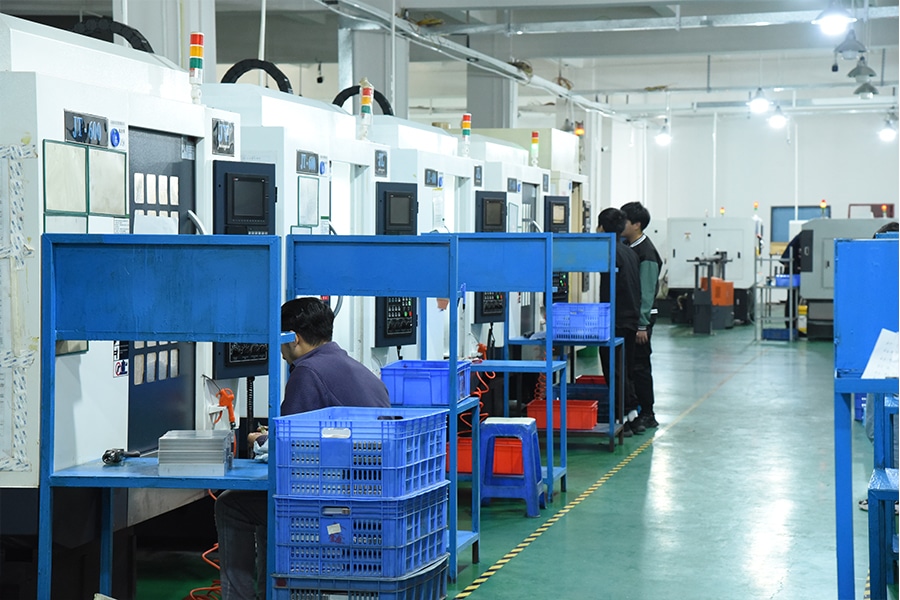Although CNC machining China made great advancement in the recent years. CNC machining industry in China also faces many challenges.
- Intense competition: The CNC machining industry in China is highly competitive, with numerous local and international players. This makes it challenging for companies to differentiate themselves and gain market share.
- Cost pressures: China’s rising labor costs and material prices put pressure on the profitability of CNC machining companies. Companies need to find ways to reduce costs without compromising on quality.
- Quality control: The perception of low-quality products from China still persists in some markets. CNC machining companies in China need to invest in robust quality control measures to ensure the products meet international standards and customer expectations.
- Intellectual property protection: China has been criticized in the past for inadequate protection of intellectual property rights. This poses a challenge for CNC machining companies that invest heavily in research and development (R&D) and need to protect their proprietary technologies.
- Technological advancements: With rapid advancements in technology, CNC machining companies need to continuously upgrade their machinery, software, and skills. Keeping up with the latest technologies can be a challenge, especially for small and medium-sized enterprises.
- Environmental regulations: China has been taking steps to address the environmental impact of its manufacturing sector. CNC machining companies need to comply with strict regulations related to emissions, waste management, and energy consumption, which can be costly and require significant investments.
- Supply chain disruptions: The global supply chain disruptions caused by events like the COVID-19 pandemic and trade tensions between China and other countries can impact the CNC machining industry. Companies need to have contingency plans in place to mitigate the risks associated with supply chain disruptions.
- Overseas market barriers: Some countries impose trade barriers, tariffs, or other restrictions on China CNC machining products. This makes it challenging for Chinese companies to access and compete in those markets, reducing their growth opportunities.
- Skilled labor shortage: Despite a large population, the CNC machining industry in China still faces a shortage of skilled labor, particularly in high-tech fields. CNC machining companies need to invest in training and development programs to bridge this skills gap.
- Ethical concerns: The CNC machining industry in China has faced criticism in the past for poor working conditions, long working hours, and low wages. Companies need to address these ethical concerns to attract and retain talent and maintain a positive reputation.
What Skills are needed for CNC machining industry in China
CNC machining skills refer to the technical expertise required to operate and program computer numeric controlled (CNC) machines. CNC machines are used to create precision parts and products by removing material from a workpiece through milling, turning, drilling, and other processes.
Some essential CNC machining skills include:
Blueprint reading: Understanding engineering drawings and blueprints is crucial for interpreting design specifications and dimensions.
CAD/CAM software proficiency: Being proficient in Computer-Aided Design (CAD) and Computer-Aided Manufacturing (CAM) software is necessary for creating and modifying design files for CNC machining.
CNC machine setup: Knowledge of machine setup procedures, including loading tools, workpiece alignment, and fixture preparation.
G-code programming: G-code is the programming language used to control CNC machines. Being able to write and edit G-code is essential for CNC machining operations.
Tool selection and toolpath optimization: Choosing the right cutting tools for specific materials and optimizing toolpaths for efficient machining operations.
Machine operation and maintenance: Understanding the operation of CNC machines, including adjusting speed, feed rates, and spindle rotation. Knowledge of machine maintenance procedures, such as cleaning, lubrication, and tool replacement.
Measurement and inspection: Skill in using precision measuring tools like calipers, micrometers, and gauges to verify dimensions and ensure accuracy.
Problem-solving and troubleshooting: Ability to identify and resolve issues that may arise during CNC machining operations, such as tool wear, material defects, or programming errors.
Safety awareness: Knowledge of safety protocols and proper use of personal protective equipment (PPE) while operating CNC machines to ensure a safe working environment.
Continuous learning and adaptability: Keeping up with advancements in CNC machining technology and techniques, as well as being adaptable to new software programs and machine models.
These skills are essential for CNC machinists and operators to efficiently and accurately produce high-quality parts and products.

